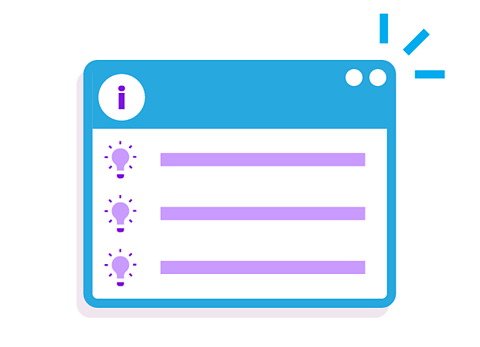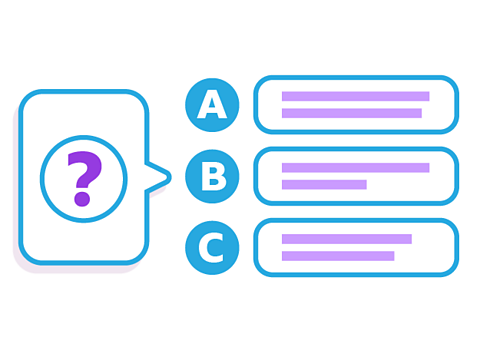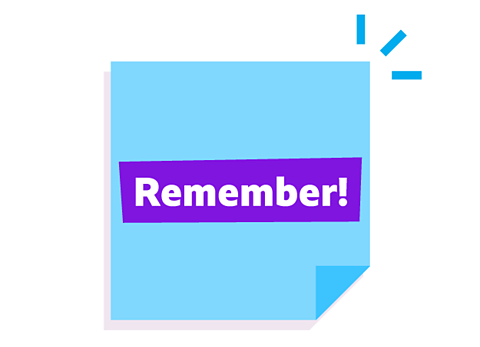Key points about the prepositions 'Г ' and 'de'

Some verbs can be followed by à and a nounThe name of a thing such as an object, a place or a person. Nouns are often described as naming words., such as dire à quelqu’un (to say to someone).
Some verbs can be followed by Г and an infinitiveThe basic form of the verb. In French, all infinitives end in '-er', '-ir' or '-re'., such as commencer Г faire (to start doing).
Some verbs can be followed by de and a noun, such as jouer d’un instrument (to play an instrument).
Some verbs can be followed by de and an infinitive, such as decider de faire (to decide to do).
Contract Г and the definite articleMeans 'the'. Definite articles change depending on whether the noun it goes with is masculine, feminine, singular or plural. as follows:
- Г + le в†’ au
- Г + la в†’ Г la
- à + l’ → à l’
- Г + les в†’ aux
Contract de and the definite article as follows:
- de + le в†’ du
- de + la в†’ de la
- de + l’ → de l’
- de + les в†’ des
Using verbs followed by 'Г '
Some verbs in French can be followed by Sorry, something went wrongCheck your connection, refresh the page and try again. plus either a noun or an infinitive.
Verbs followed by 'Г ' and a noun
Some verbs are followed by Г and a person or thing, such as Sorry, something went wrongCheck your connection, refresh the page and try again. (to say to).
For example:
J’ai dit « bonjour » à mon frère. – I said 'hello' to my brother.
Some more useful verbs that are followed by Г and a noun are:
| French | English | Example |
|---|---|---|
| Sorry, something went wrongCheck your connection, refresh the page and try again. | to ask | Elle a demandé au prof s’il y avait des devoirs. – She asked the teacher if there was any homework. |
| Sorry, something went wrongCheck your connection, refresh the page and try again. | to give to | Je vais donner une glace à mon ami. – I’m going to give my friend an ice cream. |
| Sorry, something went wrongCheck your connection, refresh the page and try again. | to write to | As-tu écrit à tes grands-parents ? – Have you written to your grandparents? |
| Sorry, something went wrongCheck your connection, refresh the page and try again. | to speak to | Avez-vous parlé à votre prof ? – Have you spoken to your teacher? |
| Sorry, something went wrongCheck your connection, refresh the page and try again. | to answer | Il ne voulait pas répondre à sa mère. – He didn’t want to answer his mother. |
| Sorry, something went wrongCheck your connection, refresh the page and try again. | to phone | Ma mère téléphone à sa sœur une fois par semaine. – My mum phones her sister once a week. |
| Sorry, something went wrongCheck your connection, refresh the page and try again. | to be interested in | Je m’intéresse au sport. – I’m interested in sport. |
| Sorry, something went wrongCheck your connection, refresh the page and try again. | to play (a sport) | Elles aiment jouer au tennis. – They like playing tennis. |
When using Г with a definite article, you need to contract the article:
| masculine | feminine | before a vowel or silent h | plural |
|---|---|---|---|
| à + le → au | à la | à l’ | à + les → aux |
For example:
Je parle au garçon. – I’m talking to the boy.
Elle répond aux e-mails. – She’s replying to the emails.
Verbs followed by 'Г ' and a noun - Mini quiz

What is the French translation of the following sentence?
I’m interested in trains.
Je m’intéresse aux trains.
When using Г with les the two words contract to aux.
Verbs followed by 'Г ' and an infinitive
Some verbs are followed by Г and an infinitive, such as Sorry, something went wrongCheck your connection, refresh the page and try again. (to learn to).
For example:
Il apprend à danser. – He’s learning to dance.
Some more useful verbs followed by Г and an infinitive are:
| French | English | Example |
|---|---|---|
| Sorry, something went wrongCheck your connection, refresh the page and try again. | to start/begin to | Nous avons commencé à recycler. – We’ve started to recycle. |
| Sorry, something went wrongCheck your connection, refresh the page and try again. | to continue to | Il continue à travailler. – He’s continuing to work. |
| Sorry, something went wrongCheck your connection, refresh the page and try again. | to succeed in/manage to | Je vais réussir à faire un marathon. – I’m going to succeed in/manage to run a marathon. |

Remember
RГ©ussir Г can also mean 'to pass' in the sense of taking an exam:
réussir à un examen – to pass an exam.
Verbs followed by 'de'
Some verbs can be followed by de plus either a noun or an infinitive.
Verbs followed by 'de' and a noun
Some verbs are followed by de and a person or thing, such as Sorry, something went wrongCheck your connection, refresh the page and try again. (to think about, have an opinion) and Sorry, something went wrongCheck your connection, refresh the page and try again. (to play an instrument).
For example:
Qu’est-ce que tu penses des devoirs ? – What do you think of homework? (What is your opinion of homework?)
Je joue du piano. – I play the piano.
When using de with a definite article, you need to contract the article:
| masculine | feminine | before a vowel or silent h | plural |
|---|---|---|---|
| de + le → du | de la | de l’ | de + les → des |
Verbs followed by 'de' and an infinitive
Some verbs are followed by Sorry, something went wrongCheck your connection, refresh the page and try again. and an infinitive, such as Sorry, something went wrongCheck your connection, refresh the page and try again. (to decide to).
For example:
Nous avons décidé d’aller à la piscine. – We’ve decided to go to the pool.
Some more useful verbs followed by de and an infinitive are:
| French | English | Example |
|---|---|---|
| Sorry, something went wrongCheck your connection, refresh the page and try again. | to try to | Ils essaient de lire un livre. – They’re trying to read a book. |
| Sorry, something went wrongCheck your connection, refresh the page and try again. | to refuse to | Je refuse de travailler ce week-end. – I’m refusing to work this weekend. |
| Sorry, something went wrongCheck your connection, refresh the page and try again. | to stop | Tu dois arrêter de parler. – You should stop talking. |
Verbs followed by 'de' and an infinitive - Mini quiz

What is the French translation of the following sentence?
He decided to learn French.
Il a décidé d’apprendre le français.
Quiz - The prepositions 'Г ' and 'de' in French
Practise what you've learned about the prepositions Г and de with nouns and infinitives with this quiz.
Now you’ve learned about the prepositions à and de, why not explore the imperfect tense?
More on Prepositions
Find out more by working through a topic
- count3 of 5

- count1 of 5
